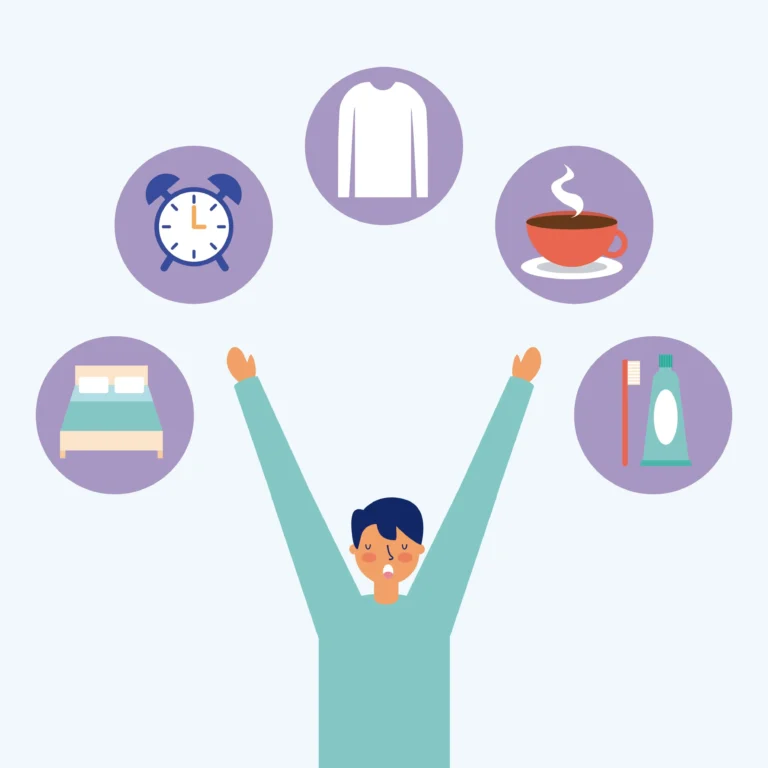Sleep is essential for good health. Yet, many adults do not get enough of it. Studies show that around 30% of adults suffer from insomnia or other sleep disorders. Lack of sleep can lead to serious health issues, including anxiety, obesity, and heart disease.
Fortunately, there is a growing focus on sleep health. New tools like sleep trackers and habit-forming apps are helping people improve their sleep hygiene. This article explores the importance of sleep, effective sleep hygiene practices, and how technology is changing our approach to sleep.
The Importance of Sleep
The Science of Sleep
Sleep is a complex process. It consists of several cycles, including REM (rapid eye movement) and non-REM sleep.
- Non-REM Sleep: This includes three stages. The first stage is light sleep, the second is deeper sleep, and the third is deep sleep. This stage is crucial for physical restoration.
- REM Sleep: This stage is when most dreaming occurs. It is important for memory consolidation and emotional regulation.
Sleep plays a vital role in our overall health. It helps with:
- Healing and repair of the heart and blood vessels.
- Regulating hormones that control appetite and metabolism.
- Enhancing brain function, memory, and learning.
Consequences of Sleep Deprivation
Not getting enough sleep can lead to serious health problems. Some common issues include:
- Obesity: Lack of sleep can increase hunger hormones, leading to weight gain.
- Diabetes: Sleep deprivation can affect insulin sensitivity.
- Cardiovascular Diseases: Poor sleep is linked to high blood pressure and heart disease.
- Mental Health Disorders: Sleep issues can worsen anxiety and depression.
In addition, sleep deprivation can lead to:
- Impaired cognitive function and decision-making.
- Increased stress levels.
- Poor emotional regulation.
Understanding Sleep Hygiene
Defining Sleep Hygiene
Sleep hygiene refers to a set of habits and practices that promote better sleep quality. Good sleep hygiene can help you fall asleep faster and enjoy deeper sleep.
Some key sleep hygiene practices include:
- Keeping a consistent sleep schedule.
- Creating a restful sleeping environment.
- Limiting caffeine and alcohol intake.
The Role of Environment
The environment plays a crucial role in sleep quality. Here are some tips for creating a sleep-conducive environment:
- Lighting: Keep your bedroom dark. Consider blackout curtains.
- Noise: Use earplugs or white noise machines to block out disruptive sounds.
- Temperature: Keep the room cool, ideally between 16-20°C.
A comfortable mattress and pillows also enhance sleep quality. Invest in quality bedding that supports your sleep needs.
Tools for Improving Sleep Hygiene
Rise of Sleep Trackers
Sleep trackers are becoming popular. They help monitor sleep patterns and quality. Many devices and apps can track your sleep, including:
- Wearable Devices: Smartwatches and fitness trackers can monitor sleep stages and duration.
- Smartphone Apps: Apps like Sleep Cycle and Sleep Score track your sleep patterns using your phone’s sensors.
Benefits of using sleep trackers include:
- Gaining insights into your sleep habits.
- Identifying patterns that disrupt sleep.
- Setting goals for improvement.
Habit-Forming Apps
Apps can help develop good sleep habits. They often include features like:
- Bedtime Reminders: Notifications to encourage a consistent sleep schedule.
- Relaxation Techniques: Guided meditations or calming sounds to help you unwind.
- Sleep Challenges: Fun activities to engage you in better sleep practices.
Some popular apps include:
- Calm: Focuses on meditation and relaxation.
- Pillow: Tracks sleep and offers insights to improve sleep quality.
User testimonials often highlight the positive changes these apps bring to their sleep routines.
Best Practices for Better Sleep
Establishing a Sleep Routine
A consistent sleep routine is vital for better sleep. Here are some tips to create a bedtime routine:
- Go to bed and wake up at the same time every day, even on weekends.
- Create a relaxing pre-sleep ritual, such as reading or taking a warm bath.
- Limit screen time at least 30 minutes before bed.
These practices signal to your body that it’s time to wind down, making it easier to fall asleep.
Lifestyle Changes for Better Sleep
Several lifestyle changes can enhance sleep quality. Consider the following:
- Diet: Avoid heavy meals, caffeine, and alcohol close to bedtime. Opt for lighter snacks if you’re hungry.
- Physical Activity: Regular exercise promotes better sleep. Aim for at least 30 minutes of moderate activity most days.
- Screen Time: Limit exposure to screens (phones, tablets, computers) before bed. The blue light emitted can interfere with sleep.
Creating a balanced lifestyle will lead to better sleep quality and overall health.
The Future of Sleep Health
Emerging Trends in Sleep Technology
Sleep technology is rapidly evolving. New advancements aim to improve our understanding and quality of sleep. Some emerging trends include:
- Smart Mattresses: Mattresses that adjust firmness based on your sleep position and body temperature.
- Sleep Coaching: Apps that provide personalised guidance based on sleep data.
- AI Sleep Analysis: Advanced algorithms that analyse sleep data and suggest improvements.
These innovations can provide tailored solutions for individual sleep needs.
The Importance of Personalisation
Personalised sleep solutions are gaining traction. With data from sleep trackers, people can develop strategies that work best for them. Benefits include:
- Understanding personal sleep patterns.
- Tailoring habits to improve sleep quality.
- Identifying and addressing specific sleep issues.
Personalisation can lead to more effective sleep management and improved overall health.
Conclusion
Sleep health is crucial for overall well-being. Understanding the importance of sleep and implementing good sleep hygiene practices can significantly improve sleep quality.
Tools like sleep trackers and habit-forming apps offer innovative ways to monitor and enhance sleep. By creating a conducive sleep environment, establishing a routine, and making lifestyle changes, individuals can unlock better sleep and, ultimately, a healthier life.
Take charge of your sleep health today. Start implementing these strategies and embrace the tools available to achieve restful nights and rejuvenated days.

